7 things that are stopping you from having a good night’s sleep
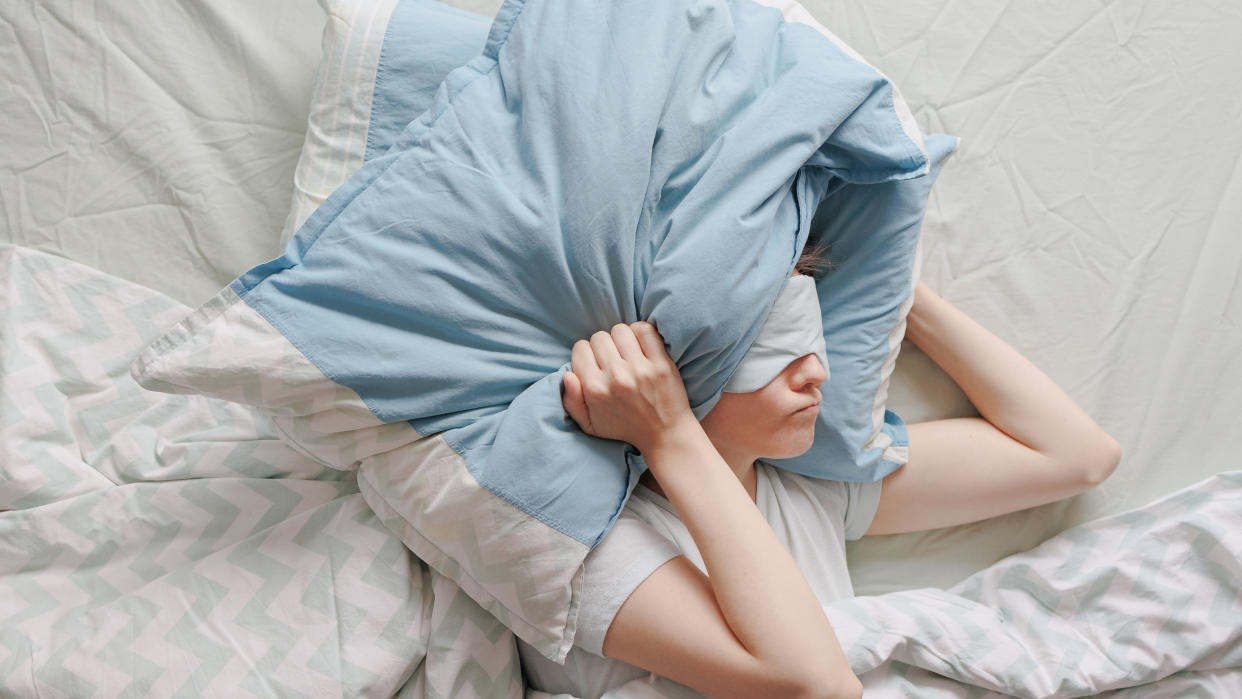
If you can’t get to sleep easily, or wake up feeling more tired than rested, it can often affect your entire day. A good night’s sleep is vital for us to function, and a lack of quality rest will make us prone to the effects of sleep deprivation, including low immunity, poor cognitive abilities, and decreased motivation.
And if you’ve tried everything possible when you can’t sleep (counting sheep?), there could be things in your bedroom that are stopping you from having a good night’s sleep. While these common things or habits may seem harmless, they can disrupt our natural sleep-wake cycle.
You want to create a calming environment at bedtime, so you can wind down without any distractions. So, if you want complete relaxation, get rid of these 7 things that are stopping you from having a sound sleep.
1. Smartphone or device
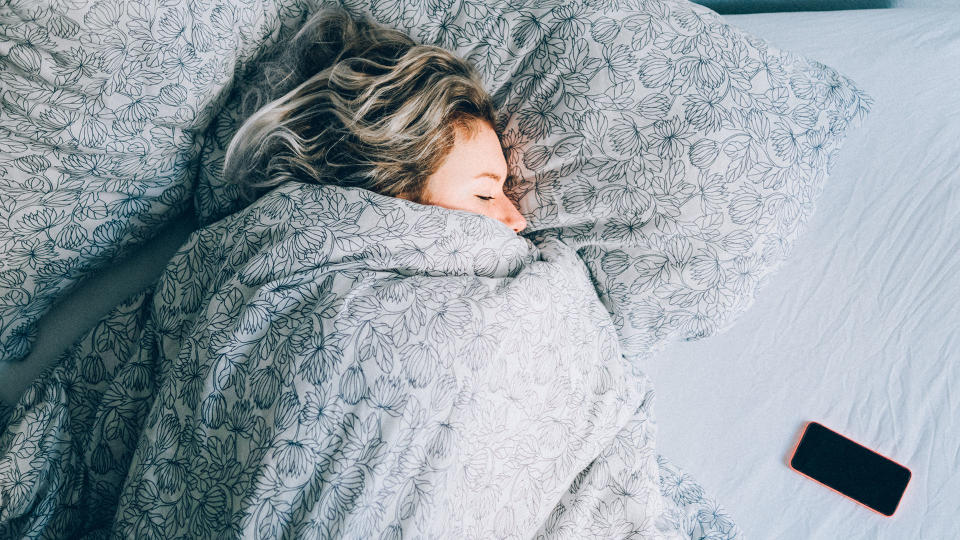
Whether it’s checking your social media, browsing apps, or watching videos, we’ve all been guilty of using our phones or tablets in bed. However, experts say this extra screen time can affect the quality of sleep.
This is mainly because they all emit a blue light that essentially boosts mood and alertness during the day. And while it’s great while we’re working, we certainly don’t want our moods boosted when we’re trying to wind down to fall asleep!
Experts recommend avoiding light-emitting screens between two to three hours before going to bed. Better still, remove these devices from your bedside table, or put your phone in another room to avoid temptation! While this might seem impossible to do, having a tech-free environment will make all the difference to your sleep.
2. Television

Similar to looking at a smartphone, watching late-night television before bedtime is a no-no. Again, the flashing colors, action-packed storylines, and people’s voices are all stimulation for the brain — disrupting your natural sleep cycle. In fact, the best time to turn off the television is around an hour before the lights go out.
What’s more,watching television is considered to be one of the most stimulating activities you can do, without even moving. “Working out a crime, being scared out of our wits, or learning are all things that are daytime activities and not something we should do in the hour before bed,” says James Wilson, expert and founder of The Sleep Geek, “Watch something funny, repetitive or trashy and your brain relaxes and switches off.” So bear this in mind the next time you want to stay up to watch the latest episode of your favorite Netflix series!
3. Eating food

This is more of a habit, rather than a thing, but eating a big meal, or indulging in midnight cravings too close to bedtime can impact our sleep. Not only can it keep you awake, but it can affect your digestion, causing all sorts of problems like heartburn and acid reflux.
Typically, when we lie down straight after eating, the contents of the stomach can press against the lower esophageal sphincter (LES), causing acid reflux or indigestion. As a result, this will cause discomfort, and will prevent you from getting a good night’s rest.
In addition, research from the Sleep Foundation shows that eating a high-calorie meal with a large fat or carbohydrates content less than an hour before bed can significantly increase the time it takes to fall asleep. However, eating heavy meals at least four hours before bedtime decreases this time. What’s more, eating and drinking before bedtime could cause you to wake up at odd times during the night, disrupting your overall sleep quality.
So if you ever wonder why you’re lying in bed awake all night, your late-night feasts could well be the answer.
4. Wrong/too many pillows
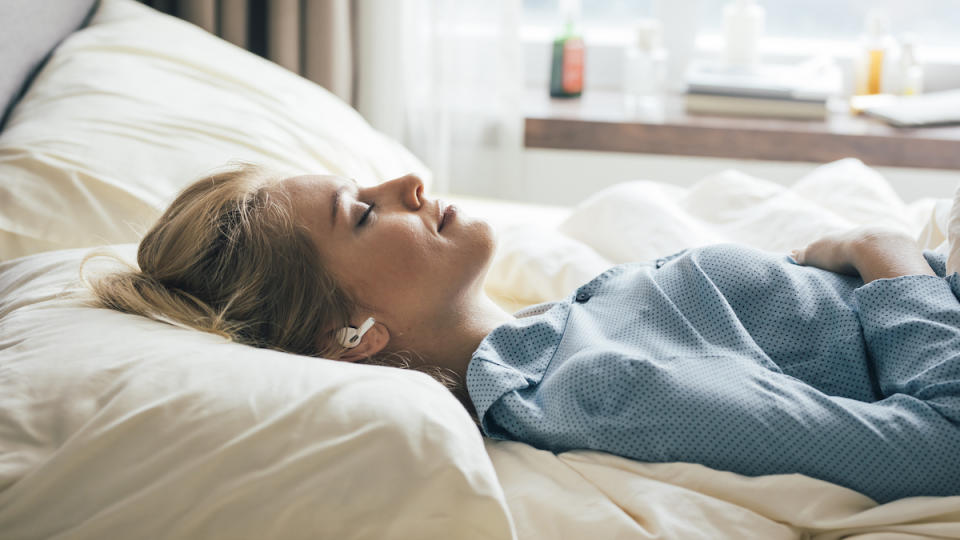
Having one of the best pillows can make all the difference to your sleep. Not only should your pillow offer adequate neck and back support, but should be comfortable for your sleep position and needs.
While there has been much debate about whether you should sleep on one pillow or two, the wrong pillow height can affect your sleep. A quality pillow should be the right height to relieve pressure on the muscles, and ensure maximum comfort.
Experts suggest that sleeping on a single pillow is the best option to keep spine alignment in its natural form, and prevent any niggling aches or pains. Not only does this reduce the risk of discomfort or waking up with a stiff neck, but allows for better breathing and circulation.
“Two pillows can provide additional support for the neck and shoulders, which can be beneficial for people with certain conditions such as chronic neck pain or sleep apnea,” states Kelly Collins, Head of creative at Swyft Home. “Additionally, two pillows can provide a sense of comfort and security for people who tend to sleep on their backs.”
What’s more, there is a pillow to match every sleep position and need — from stomach, back or side, or a combination of all three. And if you're unsure of the height you need, you can opt for an adjustable pillow so you can find the right thickness for you. So if you’re sleeping on a pile of random pillows, you could be doing more harm than good!
In case you’ve ever wondered, these are the 7 signs that it’s time to replace your pillow.
5. Setting your alarm way too early

Whether it’s waking up for a 5 a.m. run, going to the gym, or any other hobby, setting your alarm clock too early when you’re not rested is detrimental to your sleep quality. This is because you’re not sleeping with your body’s natural rhythm.
“If you are a late type or an owl, setting your alarm and getting up early is going against your circadian rhythm. And if you are an owl, you may struggle to go to sleep as early as you want to, and not meet your sleep needs because of it,” states Wilson.
As much as you want to keep consistent with your favorite hobbies, the key is to always listen to your body — especially when you’re lacking sleep. The last thing you want is to make yourself even more tired, and grumpy for the rest of the day. “If you are not waking up at 5 a.m. naturally, then you shouldn’t be making yourself do it. You are missing out on important sleep.”
6. Cluttered room
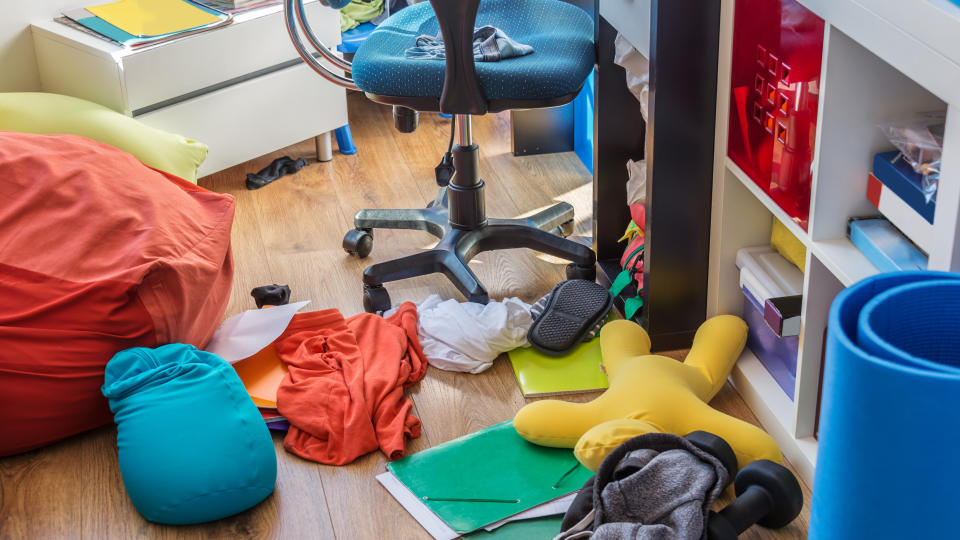
As the saying goes, a cluttered space is a cluttered mind. And if your bedroom has piles of laundry, accessories or even books lying around, this can impact on your sleep.
After all, the bedroom is the one place in the home that should be zen and peaceful for a good night’s sleep. If you’re overwhelmed with stuff, it’s essential to declutter your home, starting with these three things you should declutter right now, according to experts.
Not only will this create more floor space, but can also make a small bedroom look bigger. Once you get rid of any mess-related stress, this will maximize your relaxation and sleep quality.
Plus, you could also try these 9 Feng Shui bedroom tips to get a good night’s sleep.
7. Pets
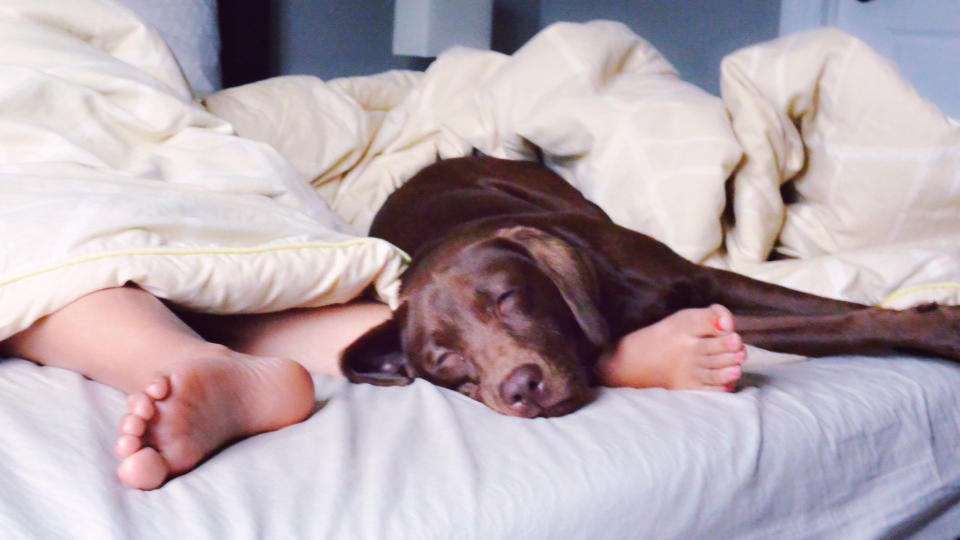
Pets are adorable, and who doesn’t love cuddling their fur babies? However, never encourage them to sleep on your bed — especially if you have a sleep disorder.
Animals tend to have different sleeping patterns to their pet parents, and cats in particular are naturally, nocturnal creatures. It’s quite common for cats or puppies waking you up to play in the early hours. Worst case, you might wake up to your pup barking excitedly at something they’ve spotted, disrupting your sleep cycle.
Give your cat their own comfortable cat bed/cat tree, or invest in one of the best dog beds. Ideally, place it in a spare room, or a corner of the living room, where they are less likely to disturb your slumber.
Experts also advise cuddling or playing with your pets before bedtime, so they are not too stimulated at night. And if they do nudge you in the middle of the night, just ignore it! Your pets will soon learn that you won’t play with them at their demand, and you can focus on getting quality sleep.
Of course, if you’ve tried ditching one (or more) of these things, and your sleepless nights continue, you may have insomnia or another sleep disorder. In that case, always seek advice from a sleep doctor to see what help is available.
